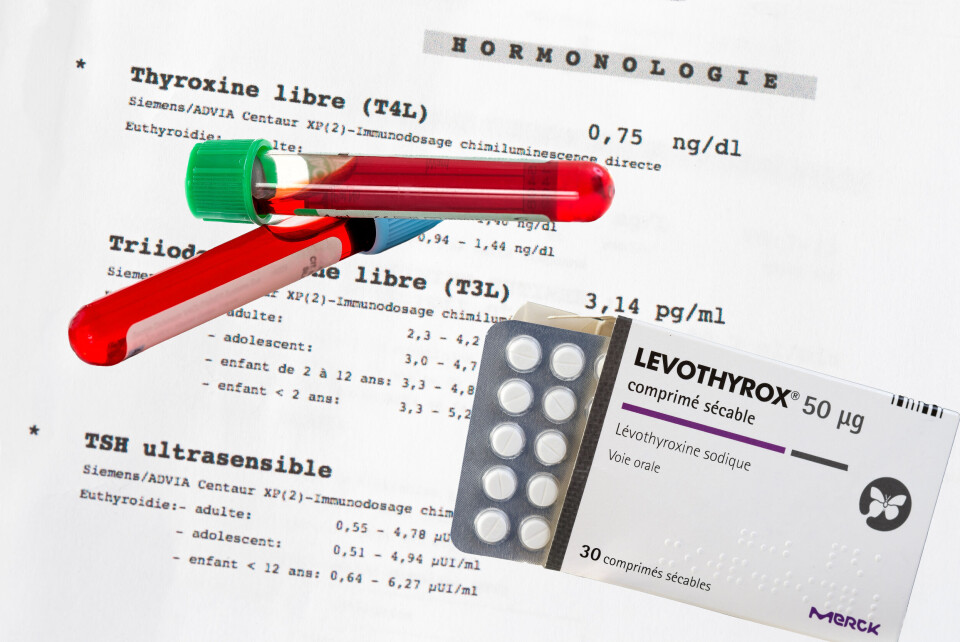-
French woman given one-year sentence for hiring men to evict squatter
Homeowner from south-west found guilty by Bordeaux criminal court
-
Drinking tap water restricted for children in south-west France communes
Haute Garonne prefecture says the measure is precautionary and due to high chlorate levels
-
French prime minister faces fresh problems to pass a 2026 budget
MPs continue to argue over budget but alternative measures could possibly see government toppled
Minister brings back old Levothyrox as crisis grows
The growing crisis over a new formulation for thyroid drug Levothyrox has forced authorities to bring back the old drug pending further investigation.

In late August, a helpline number was announced for patients to call if they were worried, after reports that the new formulation of the drug, which is prescribed to over three million users in France for thyroid issues (of which 85% are women), was causing serious side-effects.
Side effects said to be caused by the new drug formulation include dizziness, headaches, memory loss, extreme fatigue, hair loss, digestive problems, muscle cramps, and depression. These are also side effects of untreated hypothyroid problems, which has led some to suggest that the new drug could be ineffective.
Stories from patients who had taken Levothyrox without incident for years prior to the new formulation, but who suddenly felt serious side-effects after taking the new formulation, were reported across France.
Drug manufacturer Merck defended the new formulation, saying that it had been changed solely due to routine demands from the National Agency for the Safety of Medicines (ANSM) to improve it and stabilise the dosage amount, and was bioequivalent (medically identical) to the old one.
Health professionals also called for calm, saying that any drug was liable to provoke side effects, and that most problems with the new formulation were likely to be temporary.
However, the minister for health, Agnès Buzyn, has responded to the crisis, and announced that the old formulation of the drug will be available in pharmacies in 15 days, with priority given to those who have suffered bad side effects under the new formulation.
An inquiry into complaints surrounding the new drug has also been launched. Over 9 000 complaints about side effects have been recorded to date.
It is not yet clear if the new formulation will be changed, or for how long the old formulation will be available.
“I absolutely do not deny the side effects and we must listen to the complaints,” said Buzyn in her statement reported on French news channel BFMTV, but she admitted that communication between Merck and patients could have been better.
“For those who are on the new medication and feel comfortable, they do not need to change. But for patients whose side effects are bad, it would be even worse to stop taking the medicine completely, so we have ensured that the former Levothyrox is accessible so that those who would like it can take it. We want people to have a choice.”
Stay informed:
Sign up to our free weekly e-newsletter
Subscribe to access all our online articles and receive our printed monthly newspaper The Connexion at your home. News analysis, features and practical help for English-speakers in France
























